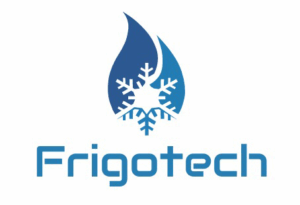- frigotech
Heat pump operation
Whether it’s an air-to-air heat pump, air-to-water heat pump, or even a geothermal ground-to-water heat pump… by drawing its source from the environment, the heat pump (HP) is a system designed to provide clean, renewable, and economical energy for the home. Since energy consumption is one of the main expenses in a household, finding a way to reduce this cost has become a daily challenge for every family.
The heat pump was created to provide heating and domestic hot water in an economical and efficient way. Moreover, it offers many advantages, and among others, the heat pump can be used both as a heating system and as an air conditioning system, depending on the unit.
But concretely, how does a heat pump work? What differentiates an air-to-air heat pump, an air-to-water heat pump, and a geothermal heat pump? In this article, discover everything you need to know about heat pumps and how they work.
Do you have a refrigeration equipment installation project? Would you like more information about our services? Contact us, we will be happy to help!
[contact-form-7 id=”1086″ title=”Contact for a Quote”]
Typically, a heat pump works on the principle of capturing heat (or energy) from the outside air, water, or ground, and then transforming it to a high enough temperature to heat a home. This source can be the ground, the air, or a groundwater table. It then uses thermodynamics and converts mechanical energy into thermal energy. To do this, the heat pump contains a refrigerant that alternates between liquid and gas states. The heat pump circulates the refrigerant in a closed circuit.
The heat pump consists of an evaporator, a compressor, a condenser (or heat exchanger), and an expansion valve. The refrigerant fluid or gas circulates continuously within this closed circuit. The change in the fluid’s state as it passes through the different components of the unit is what produces the heat.
The aerothermal air-to-air heat pump extracts energy from the outside or inside air, heats it, and injects it directly into the room to be heated. However, the air-to-air heat pump cannot heat domestic hot water.
Conversely, many air-to-air heat pumps are reversible, featuring a function that allows their system to be reversed to extract heat from inside your home and release it outside. This means your unit can also act as an air conditioner during the summer.
The air-to-water heat pump is the second type of aerothermal heat pump. It extracts thermal energy from the outside air. However, it transfers this energy into the home via a hydraulic circuit. This can be to radiators or underfloor heating (more rarely via fan coil units). These types of heat pumps can also provide domestic hot water.
A geothermal ground-to-water heat pump draws heat from the ground to warm the water in the heating circuit and for domestic hot water. The geothermal heat pump system is quite complex and transfers heat into the home via radiators or an underfloor heating system.
The hydrothermal heat pump (water-to-water) operates on the same principle as a geothermal heat pump, but it draws its thermal energy from a shallow groundwater source (underground water).
Regardless of the heat pump model and its operation, a heat pump can significantly reduce fossil fuel consumption compared to an old gas, oil, or coal boiler. The use of a natural and free resource allows for energy savings. However, during very harsh winters, a low-temperature heat pump is sometimes insufficient, which is why supplementary heating may be required.
However, before any installation, the professional in charge of your project will conduct an energy assessment and evaluate your home’s heating requirements. Furthermore, many criteria factor into the choice of a heat pump and its optimal operation. This depends on your home’s insulation and the desired comfort level. Moreover, if your home is very poorly insulated, it may be necessary to carry out insulation work first. Indeed, a heat pump will not be effective enough to counteract heat loss caused by poor thermal insulation.
Finally, regarding the electricity consumption of a heat pump, one must refer to the Coefficient of Performance (COP). The COP of a heat pump is most often greater than 3. This means that for 3 kWh of thermal energy produced, the system only consumes 1 kWh. For comparison, an electric heating system using resistors has a COP of 1.
We guarantee that our products comply with your order and meet the normal expectations you may have, taking into account the product specifications. We also guarantee that our products comply with all laws in force at the time of your order.
This post is also available in: Dutch French
Frigotech is a company specializing in industrial and commercial refrigeration, air conditioning, and ventilation. Approved by Brussels Environment.
SOS dépannage urgent (7/7j 24/24h)
Monday-Friday: 8:00 a.m.-7:00 p.m.
Saturday: 8:00 a.m.-2:00 p.m.
Sunday: closed
All products come with a 2-year warranty. We guarantee that our products will be as ordered.
